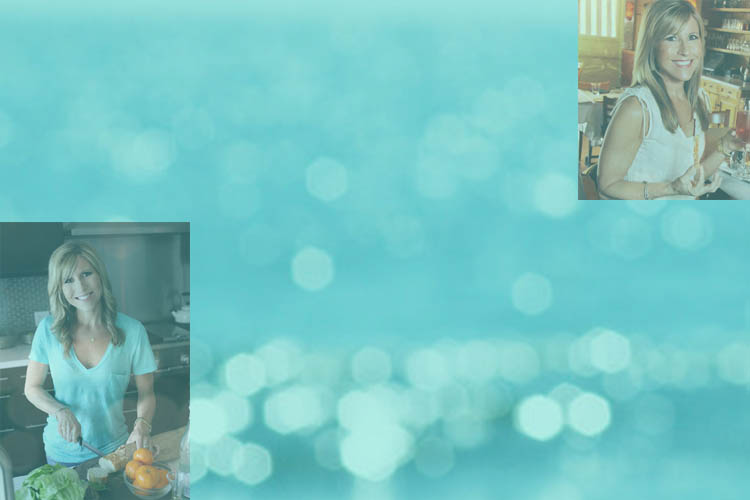I’m about to let you in on a very personal discussion. You may wonder why I am sharing this. The reason is twofold: 1) I’ve learned from several mentors whom I greatly admire, that every experience we have been given in this life is a gift that we can use to help other people, especially the difficult experiences; and 2) I just finished a book that said, “When an idea pops into our head and we think, ‘No, this is just too crazy,’ …that’s the idea we want.” That’s the idea that will make difference.
And even if it’s just for one person, that’s good enough for me.
Hence, I was inspired – no, I was compelled – to share this discussion that I participated in recently an online forum for coaches, on a topic that is very close to my heart. It sparked a dialogue that I believe would be valuable for anyone else out there dealing with eating or addiction issues personally or with someone that they love… friends, daughters, sisters, even men. If you can think of anyone who might find value in what’s here, please feel free to pass it on. (The discussion is paraphrased and I have omitted all names for confidentiality.)
It started with an initial post by a coach who was looking for advice in working with a client dealing with an eating addiction.
Here’s the comment from another coach that prompted me to chime in:
I had at least three clients spontaneously recover from very serious eating disorders last year. The issue was never food, at least not for my clients. We didn’t even talk about food/diet/etc.
It’s really about worthiness, safety, and love.
Also, the disorder serves a valuable purpose in their lives or it wouldn’t exist. Don’t try to get rid of an eating disorder without finding out what positive purpose it serves, first. When you find, recognize, acknowledge, and appreciate the benefit of the disease, you can find a more constructive way to satisfy the need without the negative consequences.
ME: I too spontaneously recovered from a 20-year intermittent struggle with bulimia. I found that as soon as I stopped focusing on the behavior itself, and found a mirror for my true authentic self, the habits around bulimia became less and less appealing. What you resist persists, and I spent 20 years waging a war against a habit, which only kept it attached to me. What was needed for me was partly surrender/acceptance of the habit itself rather than resistance, and turning my attention toward reconnecting with the parts of myself I loved, the parts of me that were strong, and empowered and self-loving and that I was in touch with back before I developed the eating disorder.
I also became a coach following this experience because coaching was so instrumental for me in my transformation. And you know what? My coach and I almost NEVER talked about my eating behavior. We focused on what I really wanted for my life and helping me get through the fears around taking action on my own behalf.
Response #1
Michelle – you’ve perfectly described the power of coaching, not just for something like an eating disorder, but for anything that shows up in life.
Whatever shows up is tapping us on the shoulder, getting our attention. It’s a gift, whether it’s ADD, broken relationships, disordered eating, or anxiety.
It’s not something to fight, but something to follow with curiosity.
You reminded me why I love this profession so much. It’s huge and holistic and embraces all of us. It helps us “connect our dots” because it focuses so clearly on who we are being instead of problems, stories or issues.
Thanks for the reminder!
Response #2
Michelle,
As a parent and coach helping the families of people with eating disorders it is so helpful to hear what helped move you toward recovery! This is what I have heard from others as well.
Do you have any tips as to how you reconnected with the parts of yourself you loved?
Thanks for giving all parents/carers hope!
ME: I’ve been thinking a lot about how to describe exactly how I made the shift. The best way I can explain it is that I simply decided there was nothing wrong with me. I recall at one point surrendering to the habit, telling myself, “well I guess I am just going to be a bulimic forever.” It wasn’t what I WANTED, but I didn’t see any other possibility after years of recurring struggle.
Then, very soon after that, in the amazing way the universe works, I was reacquainted with an old friend who had known me before the bulimia, at a time in my life when I knew who I was. It knocked me right back to my true self, and the disordered eating habit was something that just didn’t fit with that anymore. It was truly a miracle.
While it’s not possible for everyone to go out and track down a long lost friend, I think that’s what we can offer people as coaches. To be that mirror of their higher, truer self. To break through the labels, and habits, and struggles to the true essence of the person and reflect to them their greatness, their value, their possibilities. To accept them unconditionally, focus on what matters to them, help them regain their power and essence outside of the habit or “disorder”, whatever it may be.
When you label yourself as an addict, or anorexic/bulimic, fat, compulsive, neurotic or whatever label you use, it robs you of your possibilities. It’s our job as coaches to help people get them back.
On the practical side, I did a lot of journaling and some specific exercises geared around getting to know myself, rewriting the lies of my past, and reconstructing the labels I had been using to define myself. I started with some simple personality profiles (MBTI, Enneagram) and as I read some of the descriptions of personality traits that resonated with me, I remember thinking, “Hey, that’s a pretty cool quality! I’d like to be friends with someone like that!” I also found some great insights in several books, specifically Wayne Dyer’s Erroneous Zones (an oldie but goodie), and Truth, Triumph & Transformation by Sandra Anne Taylor.
Response #4
Wow Michelle!
“The best way I can explain it is that I simply decided there was nothing wrong with me.”
This statement is really so powerful and so transformational. Thinking of the recent post on “wholeness” your statement really speaks to recapturing wholeness- the one who there is nothing “wrong with”. So much of our work is about this. Re-connecting with our wholeness and letting go of the lies, the illusions, the limiting beliefs that stand in the way of (our) truth.
Distinguishing what is out of integrity for us or what is out of balance can really be useful, but somehow we objectify ourselves and others with these labels and can create limits and distorted thinking and relating.
[To be a mirror for clients of their higher self]: this is the greatest gift and really the possibility for people on this planet.
————————-
Thanks for allowing me to share!
xo
Michelle










